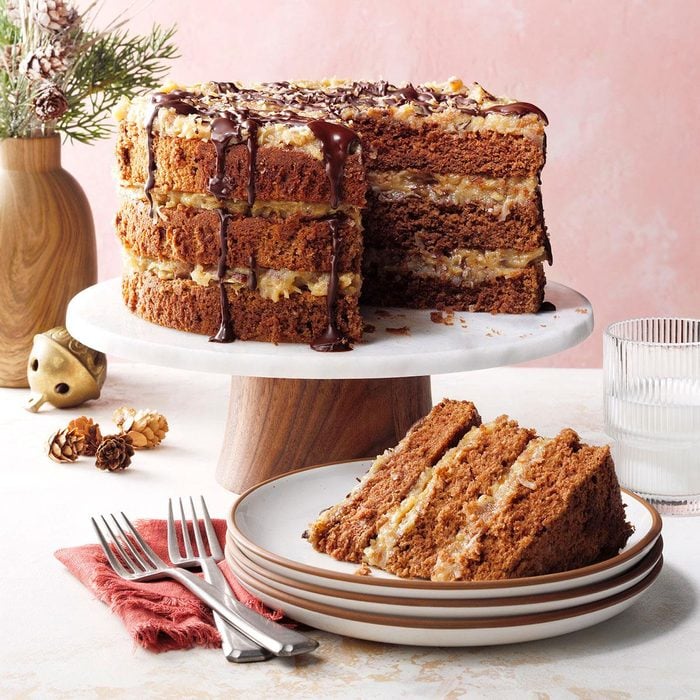Germany has a long tradition of enjoying layered frosted cakes in the afternoons, along with cups of coffee and friendly social calls from friends and neighbors. Although this German chocolate cake would fit in perfectly at a “kaffee und kuchen” event, the truth is, this is not a German recipe! In fact, German chocolate cake was invented in the 1950s in Dallas, Texas. Its name merely nods to the specific brand of chocolate called for in the recipe: German chocolate.
European or not, German chocolate cake is a classic dessert. Unlike super-dense chocolate tortes, this cake is light and airy. The frosting is thick, almost custardy, and swirled through with coconut and pecans, which add pleasant crunch and chewiness to every bite. Toweringly tall and finished with chocolate glaze, this is a showstopper dessert, but one you can absolutely make at home—especially if you’re expecting company.
Ingredients for German Chocolate Cake
- Chocolate: Naturally, the key ingredient in this cake is chocolate. While many chocolate cakes call for bitter, darker chocolates and cocoa powders, German chocolate cake uses sweet chocolate in the batter, and semisweet in the frosting. This results in a much lighter-tasting cake than some of our more decadent chocolate desserts like devil’s food cake.
- Coconut: Coconut lovers, get excited! What really sets German chocolate cake apart is its gooey, custardy frosting, stirred through with chewy flakes of shredded coconut.
- Pecans: Chopped pecans are stirred into the thick frosting, adding a crunch and a slight savory note to the sweet cake. For extra flavor, lightly toast the pecans before adding them to the recipe.
Directions
Step 1: Prep pans, and melt chocolate
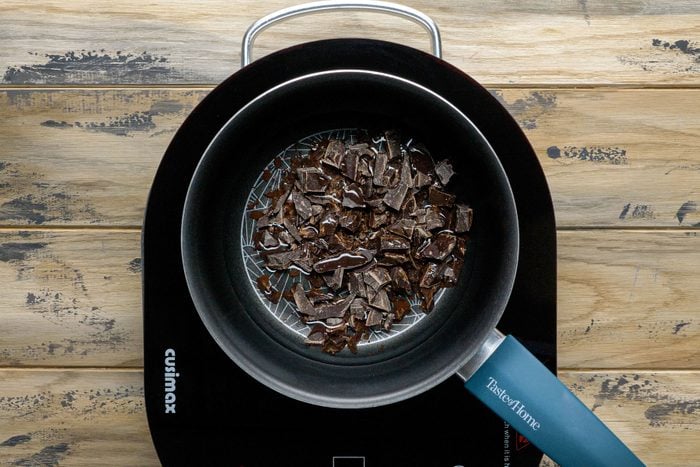
Line three greased 9-inch round baking pans with waxed paper. Grease the waxed paper, and set aside. In a small saucepan, melt the chocolate with water over low heat; set aside to cool.
Step 2: Cream the butter and sugar
Preheat the oven to 350°F. In a large bowl, cream the butter and sugar until light and fluffy, five to seven minutes.
Step 3: Add the eggs
If you haven’t separated the eggs yet, do so now. Then add the four egg yolks to the batter, one at a time, beating well after each addition. Set the whites aside for now.
Step 4: Stir in the chocolate
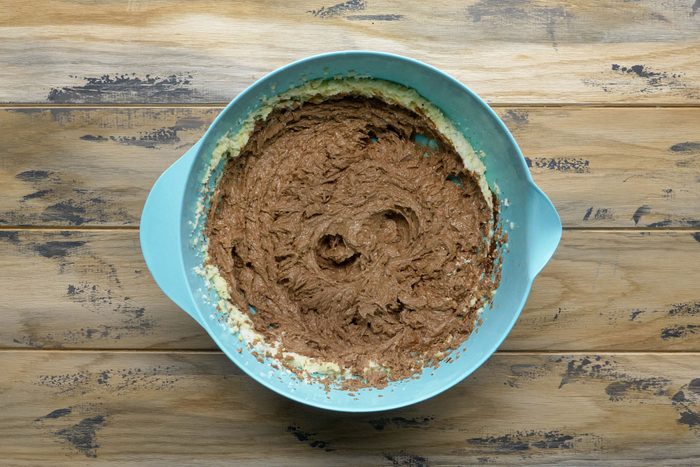
Gently beat in the melted chocolate and vanilla.
Step 5: Mix the dry ingredients
In a small bowl, whisk together the flour, baking soda and salt.
Step 6: Add the dry ingredients and buttermilk
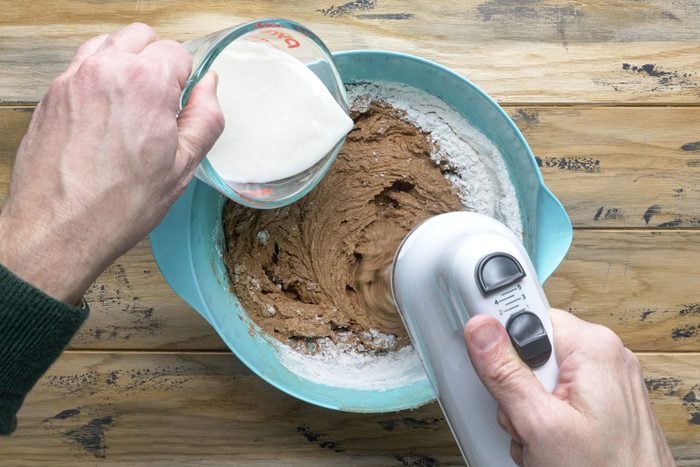
Mix about one-third of the dry mixture into the batter, and beat well. Then stir about one-third of the buttermilk into the batter, and beat well. Repeat until the dry mixture and buttermilk are fully incorporated.
Step 7: Beat the egg whites
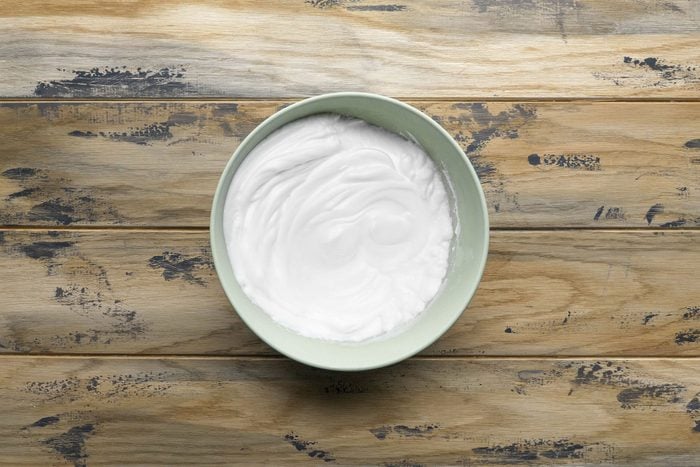
In a small bowl—and, crucially, with clean beaters—beat the four egg whites until stiff peaks form.
Editor’s Tip: If the beaters you use here are even a bit are dirty, the egg whites won’t whip to their full potential.
Step 8: Fold in the whites
Fold one-fourth of the egg whites into the creamed batter mixture. Work gently, using a large spatula or spoon. Repeat with the remaining egg whites, folding in roughly the same amount each time. Fold until the egg whites are incorporated into the batter, with no large pockets of egg remaining. Make sure to reach the spatula to the very bottom of the bowl.
Editor’s Tip: The whipped egg whites add volume to the cake, so it’s important not to crush the air out. Here’s a guide to folding ingredients into batter, if you’d like visual images.
Step 9: Bake
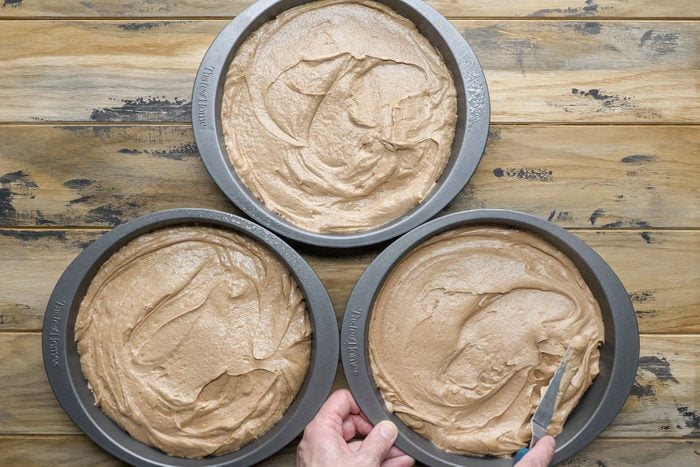
Gently pour the batter into prepared pans. Bake for 24 to 28 minutes or until a toothpick inserted in the center of each cake comes out clean. Cool 10 minutes before removing from pans to wire racks to cool completely.
Step 10: Start the icing
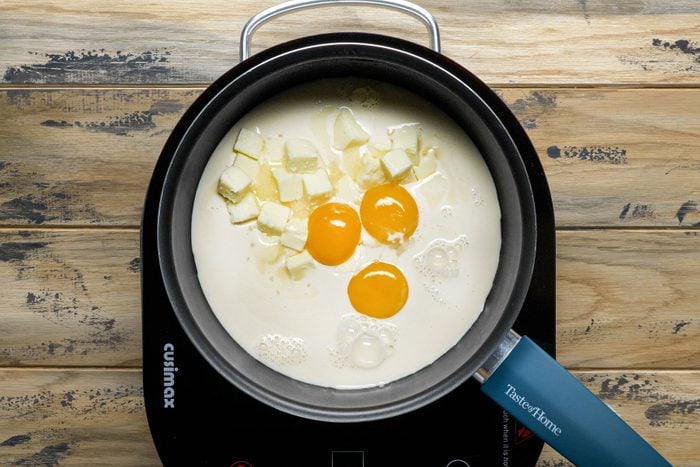
For the icing, in a small saucepan, heat the sugar, milk, butter and egg yolks over medium-low heat until mixture is thickened and golden brown, stirring constantly. Remove from heat.
Step 11: Stir in the crunch
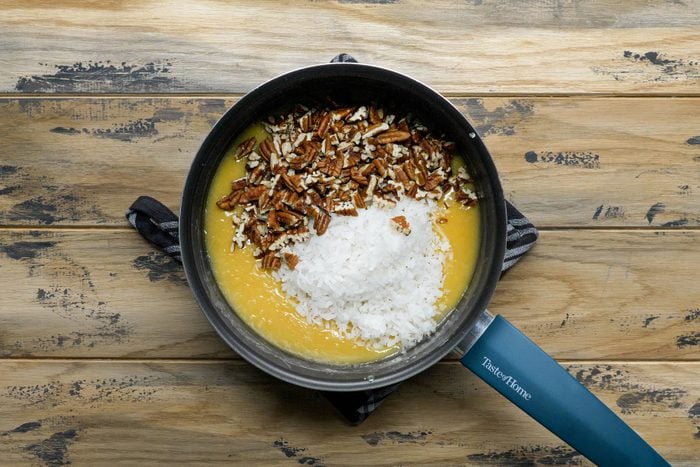
Stir in the coconut, pecans and vanilla. Allow to cool until thick enough to spread.
Step 12: Frost the cake
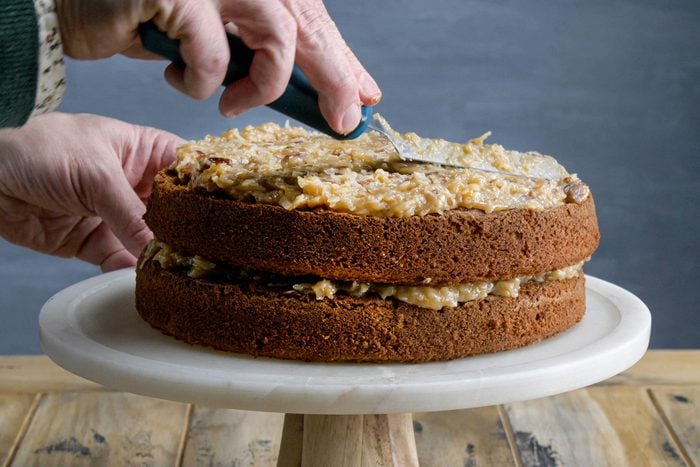
Spread one-third of the frosting over each cake layer, smoothing with a spatula. Stack the layers.
Editor’s Tip: We like to leave the sides unfrosted to show off the layers.
Step 13: Make the glaze
In a microwave, melt the chocolate and shortening. Stir until smooth.
Editor’s Tip: If your microwave is powerful, you might want to heat in short bursts so the chocolate doesn’t overheat.
Step 14: Add the glaze
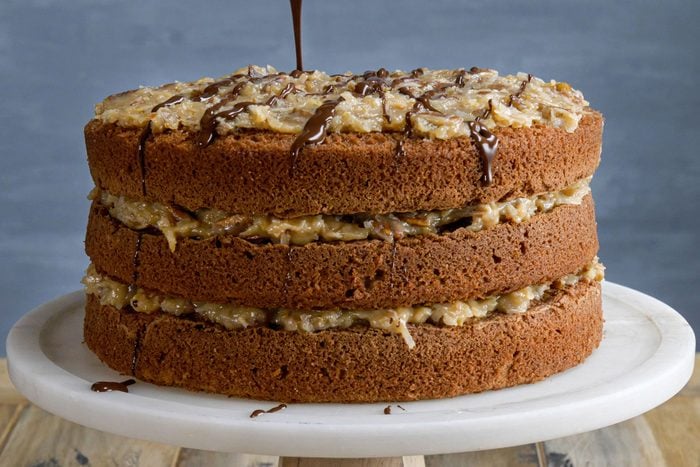
Drizzle the glaze over the cake, letting it pour down the sides.
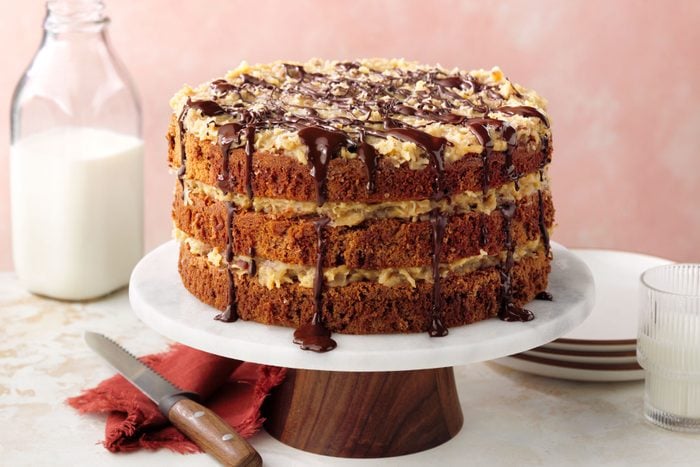
Recipe Variations
- Go darker on the glaze: While the cake is traditionally made with sweeter chocolate, you can swap in a darker type of chocolate.
- Swap in your favorite nut: Not a pecan fan? Chopped walnuts or blanched almonds would taste great, too.
- Add a coffee jolt: A tablespoon of instant coffee or espresso added to the cake batter will subtly enhance and deepen the chocolate flavor.
How to Store German Chocolate Cake
Store German chocolate cake at room temperature, covered with a cake dome (or plastic wrap, in a pinch; it will muss up the frosting a bit). It will keep for up to three days. Refrigerating the cake will dampen the flavors and harden the icing.
Can you make German chocolate cake ahead of time?
Yes, you may prepare the cake ahead by baking the cake layers, then freezing them. The icing and glaze must be prepared just before frosting and serving.
Can you freeze German chocolate cake?
The cake layers can be frozen for several months; the icing and glaze won’t freeze well. To freeze cake, allow it to cool completely after baking, then wrap tightly in plastic wrap, and double-wrap in foil or a thick bag. Let thaw in the fridge, then frost and glaze before serving.
German Chocolate Cake Tips
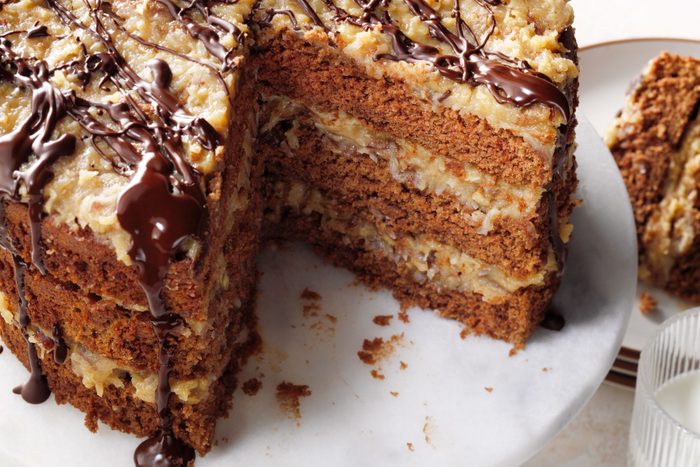
Can I use milk or cream instead of evaporated milk?
No, you cannot use milk or cream instead of evaporated milk here. The texture won’t turn out right. Evaporated milk is thicker than milk and thinner than heavy cream. And take care not to confuse evaporated milk with sweetened condensed milk, which, while delicious, is another ingredient altogether.
What if I don’t have buttermilk?
Don’t make a trip to the store just for buttermilk. You can make an easy buttermilk substitute at home.
Can I use a different type of frosting?
While it won’t really be German chocolate cake, you can swap out the frosting for another favorite frosting. The sweet, airy layer cakes will taste delicious with chocolate frosting or chocolate ganache. You can even try a twist with peanut butter frosting.




















